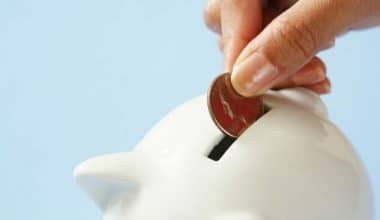What is a fair credit score? If you have fair credit, you may be thinking if this is a good thing. The good news is that having fair credit is far superior to having terrible credit in terms of financial potential. If you focus on improving your fair credit scores until you have good or excellent credit ratings, you will be able to obtain better credit cards, lower interest rates, and other benefits.
What Is a Fair Credit Score?
A FICO® Score of 580 to 669 is regarded to be a fair credit score. The Fair Isaac Corporation developed the FICO® Score, which is used by many lenders when making lending decisions. FICO® Scores typically vary from 300 to 850, with the majority falling into one of five categories: very poor, fair, good, very good, and outstanding.
There are various types of credit scores, and the majority of them are based on the information in your credit reports. FICO® Scores and VantageScore scores are two of the most prevalent forms, with exact ranges varying from the score to the score.
Why Should I Be Aware of My Credit Scores?
You should be aware of your credit scores because they are frequently used by lenders and banks to determine whether or not to grant you credit, such as a credit card, mortgage, or auto loan. A fair credit score might affect the parameters of a credit offer, such as the mortgage interest rate or the amount of the required down payment.
Is a Fair Credit Score Considered Average?
A fair credit score is also known as “having ordinary credit.” This, however, just implies that persons with fair credit, defined as anyone with a FICO score between 580 and 669, are in the middle of the credit score ranges. It does not imply that the ordinary American has a fair credit score.
FICO credit ratings currently begin at 300 points and can reach 850 points. In 2021, the average FICO credit score was 716, indicating that the average American had good credit rather than fair credit.
Your credit score is neither good nor negative if you have fair credit. It’s somewhere in the middle, which is why a fair credit score is frequently referred to as “average.”
Is My Credit Score Fair?
Once you’ve determined your FICO® Score, use the chart below to see where it falls. Around 17% of Americans have fair credit ratings, and a FICO® Score of 580 to 669 falls within this range. A credit score of less than 580 is regarded as very poor. There are numerous credit score versions available; however, we will concentrate on the two most prominent ones: FICO and VantageScore. Because FICO ratings are used by 90% of lenders, let’s start there.
FICO® Score Levels:
| Credit Score | Rating | % of People | Impact |
| 300-579 | Very Poor | 16% | Credit applicants may be required to pay a fee or deposit, and applicants with this rating may not be approved for credit at all. |
| 580-669 | Fair | 17% | Applicants with scores in this range are considered to be subprime borrowers, meaning their credit standing is less than what is normally desired. |
| 670-739 | Good | 21% | Only 8% of applicants in this score range are likely to become seriously delinquent in the future. |
| 740-799 | Very Good | 25% | Applicants with scores here are likely to receive better than average rates from lenders. |
| 800-850 | Exceptional | 21% | Applicants with scores in this range are at the top of the list for the best rates from lenders. |
A fair credit score, according to FICO, indicates that lenders see you as having a medium-high risk of default, which means that approximately 28% of consumers with fair credit scores are likely to become overdue. When you have a fair credit score, you will have a more difficult time obtaining credit. And even if you are authorized, your interest rates will be hefty.
Take heart in knowing that when you reach the mid-660s, you’re on the verge of entering golden territory (around 670). You will still not be able to receive the same deals as someone with excellent credit, but you will be more likely to be approved for credit. You’ll also get better rates than you would in the lowest end of the fair credit category.
What Is a Fair VantageScore?
The VantageScore, like the FICO score, runs from 300 to 850. The VantageScore credit ranges are as follows:
- Excellent: 781 – 850.
- Good: 661–780.
- Fair: 601–660.
- Poor: 500-600.
- Very Poor: 300 – 499.
The fair credit score range for this score version is 601 to 660. The fair credit score range for the FICO score is 580 to 669. There is considerable overlap, but with VantageScore, a score of 661 is enough to enter the good credit zone. To have good credit, you need a FICO score of 670.
The reason for the discrepancy is that these two types of ratings weigh criteria differently, such as credit history. As a result, even though they share the same 300-850 score range, they cannot be directly compared.
How Is Your FICO Score Calculated?
You’ll have a greater chance of leveraging the FICO score to your advantage once you grasp how it’s calculated. Here are the five factors that are taken into account:
- Payment History: 35%
- The amount owed: 30%.
- Credit history length: 15%
- New Credit: 10% new credit.
- Credit mix: 10%
It is important to note that payment history and amounts due account for 65% of your FICO score. It is critical to pay close attention to these two elements in particular. Now that you understand what factors contribute to your credit score, you’re ready to improve your fair credit score.
Do I Want a Fair Credit Score?
You want to get the finest credit ratings available in order to save money when applying for a loan or credit. Fair credit ratings indicate that you are considered subprime by lenders, which means you will likely receive less favorable conditions than someone with a better credit score. This could result in increased interest rates or perhaps outright rejection.
Improving your credit score over time, from fair to good and beyond, increases your chances of qualifying for credit with better terms. Having good credit scores can help you better your financial status in general. Here are some of the reasons why you should strive for improved credit scores:
- Lower interest rate loans for home loans, car loans, student loans, and personal loans can be obtained with higher credit scores.
- Higher credit ratings can result in reduced monthly loan payments. If you receive a lower interest rate, your monthly payments will most likely be cheaper.
- Credit card offers will give greater credit card benefits and discounts, such as larger percentage cash back options, 0% interest rates, and increased credit limits.
- Higher credit ratings can make it easier to get approved for a home or apartment rental.
What Factors Affect My Credit Score?
The behaviors that can affect your credit score differ depending on the credit scoring methodology employed. The following are the most typical items that can have an impact on your credit score:
- Late payments: This occurs when bills, such as loans and credit cards, are paid after the due date.
- Poor Payment History: The total number of late payments and the length of time they are late.
- High Credit Utilization Rate: The amount you owe in comparison to the amount of credit accessible to you.
- Credit History and Mix: The amount of time you’ve had credit, as well as the types of credit accounts you have.
- Total Debt: The total amount of your outstanding debt across all of your credit accounts.
- Bankruptcies and civil judgments: These are examples of negative public records.
- Credit Applications: When you apply for a large amount of credit in a short period of time.
What Credit Cards Can I Apply For If I Have Fair Credit?
While many of the best rewards credit cards are only available to people with good or excellent credit, there are still numerous credit cards that are worth considering if you have fair credit.
For example, the Capital One QuicksilverOne Cash Rewards Credit Card is a cashback credit card that provides unlimited 1.5 percent cash back on all purchases. This card has an annual charge of $39, but it comes with two significant benefits: You can use Capital One’s CreditWise® service to monitor and improve your credit score, and if you use your card responsibly, you’ll be automatically eligible for a greater credit line after six months.
Consider the Discover it® Secured Credit Card, a cashback rewards card developed expressly to help you establish your credit history and improve your credit score. When you apply for a secured credit card, you must pay a refundable security deposit in return for a credit line. After seven months, your Discover it® Secured Credit Card account will be assessed to see if you qualify to receive your security deposit back and upgrade to an unsecured line of credit.
You’ll get 2% cash back at petrol stations and restaurants on up to $1,000 in combined purchases each quarter (then 1%), and 1% cash back on all other purchases when you use your Discover it® Secured Credit Card. You’ll also get to take advantage of Discover’s Cashback MatchTM program, which matches all cash back earned in your first year as a cardholder. When you log into your Discover account or use the mobile app, you can also view your free credit scorecard with your FICO Credit Score, allowing you to check your score on a regular basis and watch it develop.
How To Improve Fair Credit
A fair credit score indicates that you do not have bad credit, but it also indicates that you have a lot of potential for development. Here’s what we recommend if you want to raise your credit score:
#1. Pay all of your credit card bills on time.
Your payment history has the greatest impact on your credit score, accounting for 35% of the total, so avoid late payments wherever feasible. If you miss a payment by mistake, strive to pay it off before it gets 30 days past due. Late fines and penalty APRs will be avoided, and your late payment will not be reported to the three credit bureaus.
#2. Maintain the lowest possible balances.
Your credit score is also heavily influenced by your credit utilization—the amount of credit you use in comparison to the amount of credit available to you—which accounts for 30% of your score. Maintaining low amounts or paying them off, on the whole, will lower your credit usage ratio and boost your credit score.
#3. Increase your credit limit.
You can improve your credit score by seeking a credit limit increase or applying for a new credit card. If you have more credit available to you and avoid turning that extra credit into new debt, your credit usage ratio will decrease and your credit score should rise.
#4. Examine your credit reports for any mistakes.
According to a 2013 Federal Trade Commission survey, 5% of Americans have inaccuracies on at least one of their three credit reports—and incorrect information may be lowering your credit score. Check your credit reports from Experian, Equifax, and TransUnion on a monthly basis and contest any mistakes you uncover.
As you continue to utilize credit responsibly—by making on-time monthly payments and paying off your debt as soon as possible—your credit score should increase over time. Depending on where you are in your credit-building journey, you could see significant progress in as little as a few months. Improving your credit will provide you access to better credit cards and reduced interest rates, and your credit alternatives will only expand as your credit score rises.
What Is the Minimum Fair Credit Score?
A credit score of less than 669 is categorized as either “fair” or “poor” according to the FICO scoring scale, which ranges from 300 to 850. You may improve your credit score by doing certain actions, and the sooner you address certain variables, the more quickly your score will improve.
Is 700 a Good Credit Score?
A FICO® Score of 700 or more is considered to be Good; but, if you can raise your score to the Very Good level, you may become eligible for reduced interest rates and improved borrowing terms. Begin your free credit report from Experian and check your credit score to learn the particular aspects of your financial history that have the greatest influence on your score. This is an excellent way to get started.
What Is a Decent Credit Score?
Credit scores in the range of 580 to 669 are seen as satisfactory; those in the range of 670 to 739 are regarded as good; those in the range of 740 to 799 are regarded as very good; and those with scores of 800 and higher are regarded as excellent.
Can You Have a 900 Credit Score?
A credit score of 900 is not unheard of, albeit it does depend on the sort of scoring algorithm used. FICO Auto Score and FICO Bankcard Score models have a range from 250 to 900, in contrast to the most prevalent FICO and VantageScore models, which only go up to 850.
What Credit Score Does Everyone Start With?
The majority of the most often used algorithms for calculating credit scores begin with a base score of 300. It is only feasible, to begin with a score of approximately 300 if you have not done a good job of managing your cash. Without using any kind of credit at all, you can get a head start on building a credit history or improving your score.
What Is the Average Us Credit Score?
Credit scores are three-digit numbers that reveal an essential aspect of one’s past financial history. Lenders will look at your credit score when deciding whether or not to give you credit. According to data provided by VantageScore® from February 2021, the typical credit score in the United States is currently 698. The idea that you only have one credit score is a common misconception.
Conclusion
Don’t be concerned if your credit scores are currently fair or terrible. There are things you can do to help them improve. To begin, make sure you pay your bills on time and in full every month, as late payments have a negative impact on your credit scores. If you have trouble remembering to make your payments, consider setting up auto-pay.
Second, strive to keep your credit usage ratio as low as possible. The amount of debt you owe in relation to your available credit is a crucial aspect of credit score calculation, and lowering your ratio can help your credit. Finally, apply for new credit only when necessary, and avoid opening too many accounts at once.
While you’re attempting to enhance your credit scores, you should double-check that everything on your credit reports is correct. You may acquire a free copy of your credit report from each of the three main credit bureaus once a year by visiting annualreport.com. If you discover any issues, try to fix them as soon as possible.
Fair Credit FAQs
Can your loan get approved with fair credit?
FICO considers a credit score range of 580 to 669 (on an 850-point scale) to be fair, and while your score is below average, “many lenders will approve loans with this score.”
How can I raise my credit score to 800?
- Always pay your bills on time.
- Maintain a low credit card balance.
- Keep an eye on your credit history.
- Enhance Your Credit Mix.
- Examine Your Credit Reports.
What are the easiest loans to get approved for?
Payday loans, automobile title loans, pawnshop loans, and personal installment loans are probably the easiest to obtain and accepted. These are all short-term cash solutions for needy individuals with weak credit. Many of these solutions are intended to assist debtors in need of quick cash.
Related Articles
- Minimum Credit Score To Buy A House In 2023
- What Credit Score Do You Need to Buy a House: Best US Practices in 2023
- WHAT IS BUSINESS CREDIT: Definition, and Uses
- AVERAGE CREDIT SCORE BY AGE: What You Need to Know About Each Age
- WHAT CREDIT SCORE DO YOU START WITH: All You Should Know






